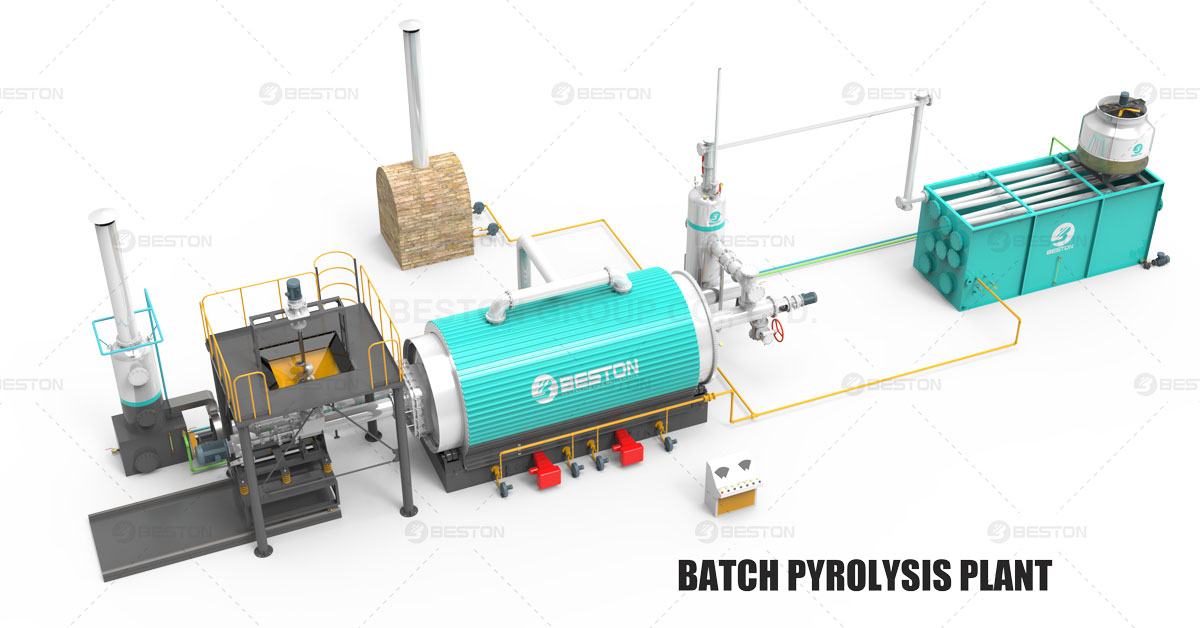Reducing Carbon Footprint with Small Pyrolysis Plants: A Sustainable Solution
In today's world, where environmental concerns are paramount, finding innovative ways to reduce our carbon footprint is essential. This is where small pyrolysis plants come into play. These compact yet versatile machines have the potential to revolutionize waste management by transforming various organic materials into valuable byproducts. Let's delve into the significance of small pyrolysis plants and their diverse applications in minimizing our carbon footprint.
Unlocking the Potential of Small Pyrolysis Plants
Small pyrolysis plants are designed with one key objective in mind: to harness the power of pyrolysis – a thermochemical decomposition process – to convert organic waste materials into valuable outputs. These outputs include charcoal, biofuel, and bio oil. The versatility of these plants allows them to process an array of materials, from rice husks to liquid sludge, effectively reducing waste that would otherwise end up in landfills.
The Advantages of Choosing a Small Pyrolysis Plant
Efficient Utilization of Organic Waste: The primary purpose of small pyrolysis plants is to transform organic waste into usable products. By converting waste materials like plastic, rubber, and agricultural residue, these plants contribute to reducing environmental pollution and the strain on landfills.
Diverse Usable Outputs: Small pyrolysis plants generate a range of valuable byproducts, including charcoal, biofuel, and bio oil. These outputs can be used in various industries, such as energy production and agriculture, offering an eco-friendly alternative to conventional fossil fuels.
Economic Viability: While contributing to environmental sustainability is paramount, the economic benefits of small pyrolysis plants are equally compelling. By producing marketable outputs, businesses can generate revenue from materials that were previously considered waste.
Versatile Applications: Small pyrolysis plants are suitable for a wide range of businesses, from small-scale operations to larger industrial facilities. Their compact size and user-friendly operation make them accessible to a broader audience, ensuring that more businesses can participate in sustainable waste management practices.
Reducing Carbon Footprint: The utilization of organic waste to produce valuable products aligns with the global goal of reducing carbon emissions. By converting waste materials into usable outputs, small pyrolysis plants contribute to a circular economy, minimizing the need for new resource extraction and reducing greenhouse gas emissions.
Making Informed Choices
When considering a small pyrolysis plant, several factors need to be taken into account. Factors such as the manufacturer's reputation, plant specifications, and pricing should all be thoroughly assessed. By choosing a plant that aligns with your waste volume and output goals, you're not only investing in your business's profitability but also making a positive impact on the environment.
In Conclusion
Small pyrolysis plants offer a powerful solution to two of today's most pressing challenges: effective waste management and carbon footprint reduction. By transforming organic waste into valuable outputs, these plants bridge the gap between sustainability and economic viability. Investing in a small pyrolysis plant is not just a business decision; it's a step towards a greener, more sustainable future.
